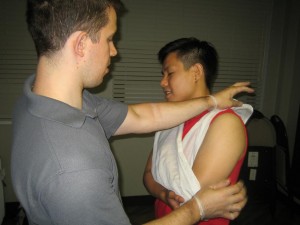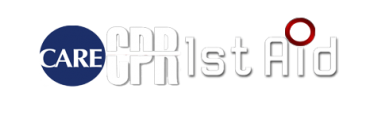Cardiac arrest and CPR

Cardiopulmonary resuscitation is a skill that can be used in and out of a hospital setting. It is a constant when it comes to managing cardiac emergencies, particularly cardiac arrest. When a person gets a heart attack and goes into cardiac arrest, there is little that a person can do aside from give CPR. In a medical set up, medication and assistive equipment are available but CPR is still the main intervention used.
How does CPR help?
During cardiac arrest, the heart stops beating completely or become very slow or erratic. The victim’s pulse becomes absent or very faint. If the heart isn’t beating, the major organs will enter a state of hypoxia because of a lack of oxygenated blood. Our cells begin to die with oxygen – very dangerous for the brain that can only last up to 10 minutes with adequate blood flow before irreversible damage happen.
In CPR, chest compressions are used to get the heart beating again. The force of the compressions on the chest will manually pump the heart to send blood to the rest of the body. Repeating this action (at least 100 times a minute) can also help “restart” the heart and get it beating again.
Because victims typically do not breathe regularly during cardiac arrest, ventilations are given via mouth-to-mouth or bag valve mask. This helps oxygenate the blood in the absence of adequate respiration.
Will American CPR Courses teach me how to give defibrillation?
Defibrillation is one of the core skills that is included in all our training courses. Performing defibrillation is a skill that can only be practiced if an AED is available, usually if you are an EMT or work in a health care facility, but we still include it in the basic courses. An AED is able to send electricity to the heart to return it to a normal sinus rhythm (regular heart beat). Unlike what you see in movies and on TV, you cannot defibrillate a victim who has a flatline (asystole).
CPR training programs
We have training locations in six cities in the US. They all offer the same training programs at the same rates, with varied schedules depending on the trainees who sign up in that particular location.
Basic Life Support
- Heartsaver – general public; one -person rescue
- Heartsaver C – healthcare providers; one-person rescue
- Basic Life Support for HCPs – one and two person rescue
Advanced Life Support
- Advanced Cardiac Life Support (ACLS) – medical management of adult victims/patients
- Pediatric Advanced Life Support (PALS) – medical management of pediatric victims/patients
Certificates that you receive from any of our programs above are valid for 24 months. Before they expire, you can renew them through a re-certification class. We only offer re-certification for three programs: BLS for HCPs and both ALS programs. We do not accept rescuers with expired certificates for re-certification training so remember to sign up early.
